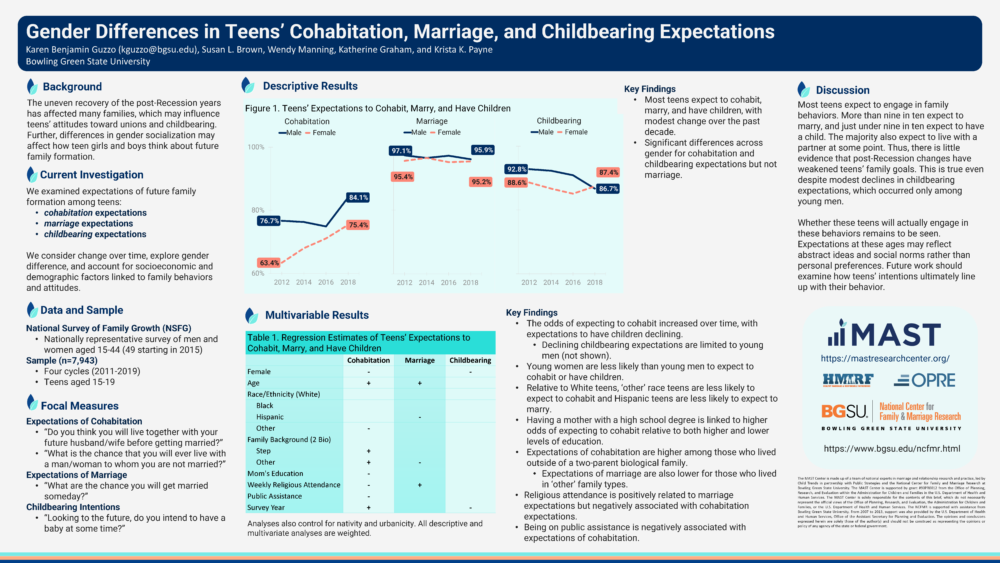Gender Differences in Teens’ Cohabitation, Marriage, and Childbearing Expectations
The uneven recovery of the post-Recession years has affected many families, which may influence teens’ attitudes toward unions and childbearing. Further, differences in gender socialization may affect how teen girls and boys think about future family formation. The purpose of this project was to examine the cohabitation, marriage and childbearing expectations of future family formation among teens. MAST Center partners at the National Center for Family & Marriage Research (NCFMR) at Bowling Green State University analyzed data from the National Survey of Family Growth (NSFG), considering change over time, exploring gender differences, and accounting for socioeconomic and demographic factors linked to family behaviors and attitudes. Key findings indicate that most teens expect to cohabit, marry, and have children, with modest change over the past decade. The analyses also found significant differences across gender for cohabitation and childbearing expectations, but not marriage.
This poster was presented at the 2021 National Council on Family Relations (NCFR) Annual Conference.





